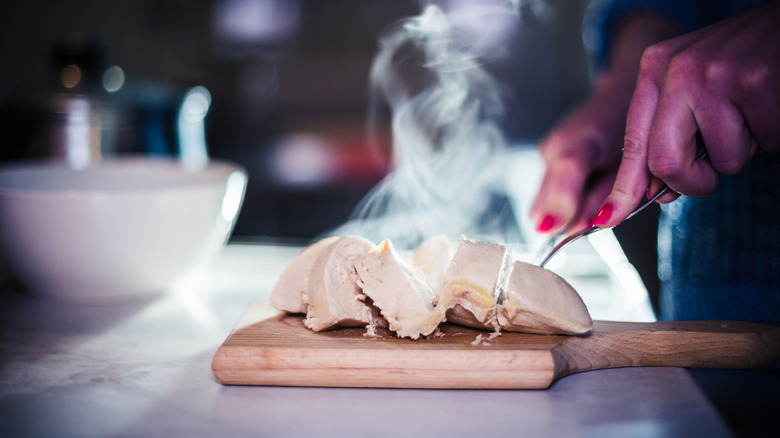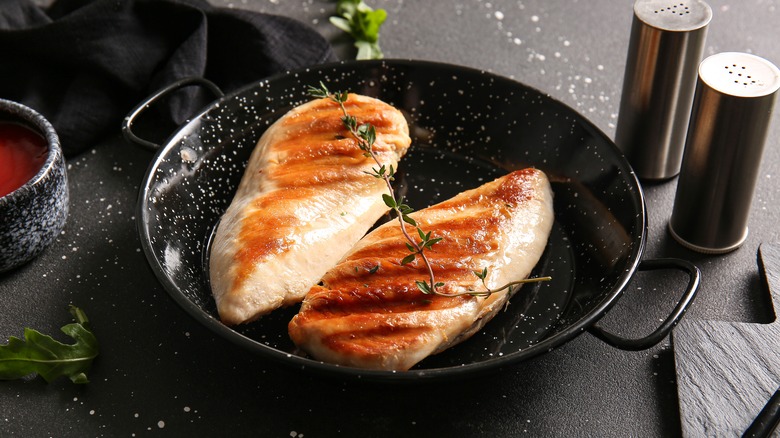The Reason Your Chicken Turns Out Rubbery (And How To Prevent It)
Chicken is one of the earth's most versatile meats, as delicious in a quick and easy skillet teriyaki recipe as it is roasted whole in the oven. One of the most often purchased cuts of chicken is the breast, but despite its popularity, it's easy to turn into an inedible, tire-like piece of poultry. Has this happened to you? Luckily, the reason is simple, and so is the fix — Food Republic got the expert low-down from Rocco Carulli, owner and executive chef at R House, an eatery in Miami, Florida. "Rubbery chicken usually means it's overcooked or under-brined," he explained.
"Breast meat has very little fat," he continued, "so if you miss the sweet spot, it tightens up like a bad handshake." He offered this advice: Brine it first (brining both tenderizes and flavors the meat). That typically means a saltwater solution, but just like you might use pickle juice to brine chicken heading for the fryer, it's also a great brine for breasts — you get flavor and moisture.
Next, Carulli suggested not putting it on a pan with the heat cranked all the way up (medium heat is usually the best), and then he insisted you should always give it a rest after cooking. "It needs time to relax — just like we all do," he added.
Tips for cooking your chicken breast to perfection
Of course, brining your chicken is just half the battle because you still have to get a handle on overcooking it. A lot of people are afraid of undercooking their chicken breasts, so they blast it on high heat and leave it on the stove way too long. You don't have to be afraid of undercooking your chicken — you just need a good meat thermometer. It's "a home cook's best friend," said Rocco Carulli.
When you have your chicken in the pan, he advised that you should "aim for 160 degrees Fahrenheit internal temp, then let it rest — carryover will take it to a safe 165 degrees Fahrenheit" (you should never, ever eat chicken that hasn't been cooked to 165 degrees Fahrenheit). He also mentioned that you can go by feel and sight. "The meat should bounce back gently when pressed, not feel like a tennis ball," and, he told us, the juices should run clear (versus pink or cloudy).
If you're still having issues overcooking your chicken breasts, it could be their size causing you to overcompensate with superfluous heat and time. If you have extra thick breasts, try slicing them in half, length-wise, to make thinner pats of meat. They'll come up to temperature a lot faster and cook more evenly, too.


